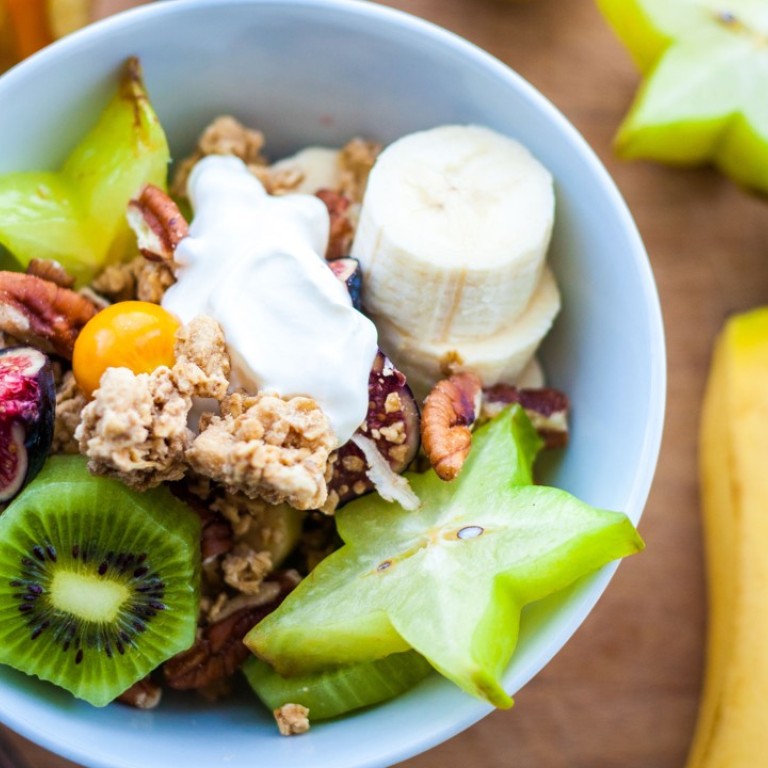
How skipping breakfast sets you up for bad food choices all day, and the impact that can have on the health of your arteries
Low energy, bad moods, low blood sugar, overeating – these consequences of skipping breakfast are well known. Now comes a new study suggesting the habit also contributes to blocked arteries
Is skipping breakfast associated with cardiovascular problems?
The short answer: Yes
We’ve all heard of the benefits of tucking into a healthy breakfast every morning. Besides giving us an energy boost so that we can take on the challenges of the day, the morning meal is said to help jump-start our metabolism, prevent us from overeating, and improve our concentration and performance at work or in school.
Instagrammer Michael Zee’s symmetrical breakfasts, huge in Hong Kong – how they became an internet sensation
We also know the downside of forgoing the first meal of the day: it increases our risk of hypoglycaemia or low blood sugar, makes us more susceptible to weight gain, affects our thinking, and has a negative impact on our mood and energy levels. But a new study (“The Importance of Breakfast in Atherosclerosis Disease”), published in the Journal of the American College of Cardiology, has found that skipping breakfast is also associated with another detrimental effect on the body – that of atherosclerosis, a disease in which plaque builds up inside the arteries.
Four simple and effective ways to reduce colorectal cancer risk
The research team examined volunteers who skipped breakfast; who consumed only a light or low-energy breakfast; and who consumed a high-energy breakfast. Of the three groups, the first was found to have more than double the risk of atherosclerosis compared to the third group. This group also had the greatest waist circumference and body mass index, and the highest blood pressure, blood lipid and fasting glucose levels. Atherosclerosis was also seen more frequently in the second group.

There was something else about the breakfast skippers that made them stand out from those who consumed breakfast: they were more likely to have unhealthy eating and lifestyle habits in general – they had a poor diet, smoked, and drank alcohol frequently. The study also found that they had more atherosclerotic lesions and atherosclerotic plaques.
The results do not surprise Philip Watkins, a naturopath at the Integrated Medicine Institute, a medical clinic in Hong Kong’s Central business district. He says that skipping breakfast is something he sees quite often in his practice, and warns that this bad habit can set us up for a day of unhealthy dietary choices.
Is the 80/20 rule true when it comes to weight loss? Hong Kong naturopath says yes
“One of the easiest ways to understand why eating breakfast is important is to deconstruct the roles that protein, carbohydrates and fat play in daily life,” Watkins explains. “Each of these macronutrients has a role in building something that’s important to the body. Carbohydrates, for example, help us create energy, protein helps to create healthy brain chemicals, and fat gives us a feeling of satiety after a meal. Naturally, if our body is low on these resources it will take measures to correct the problem as best as possible, sometimes without us even realising it.”
Intermittent fasting is a proven way of losing weight quickly – but it may not work for everyone
Watkins says that we see this occur as a “cascade of events” that follows after skipping breakfast. “If our body is low on energy as the day progresses, our natural inclination is to choose foods that will rectify this deficit as soon as possible.
“Unfortunately for most, these foods tend to be high in refined sugar or processed ingredients – the same ingredients that are associated with serious chronic illnesses such as diabetes, Alzheimer’s, cardiovascular disease and fatty liver. This explains the link between skipping breakfast and what’s considered an unhealthy lifestyle.”

These same poor dietary choices also cause our blood sugar levels to fluctuate: We might experience a glucose “rush” after consuming something that’s high in refined sugar; the glucose is rapidly digested, causing our blood sugar levels to fall dramatically – something that Watkins says we might experience as a “crash in energy”. To counteract the lethargy, we might reach for yet another unhealthy snack, and so the cycle continues.
Vegan Hong Kong bodybuilder Hin Chun Chui wrestles protein myths and shows you don’t need meat or dairy to be a winner
Mornings are busy for many of us, but that’s no reason to skip breakfast. And if you’re trying to lose weight, skipping your morning meal is one of the worst things you can do, as it can trigger serious hunger cravings, causing you to binge-eat or make unhealthy food choices later in the day. According to Watkins, a healthy breakfast is one that’s minimally processed and covers the main macronutrient food groups – that is, protein, carbohydrates and fat. If you’re always pressed for time in the mornings, it’s a good idea to get breakfast ready the night before, so that you can “grab it and go” before you leave the house.
“Of the three main meals, breakfast is often the one we’re taught to value the most, but it’s also the one that many of us have the most trouble with,” Watkins adds. “If your appetite is always low in the morning then you may wish to see a health professional to get to the root of the issue.”

